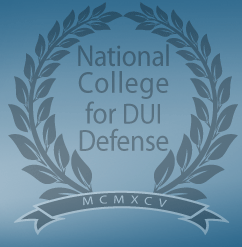Supporters of a proposal to overhaul the state’s DUI laws said Wednesday they are focusing on a narrower set of changes and hoping to tackle the issue in an expected special legislative session.
Seattle Times Olympia bureau
OLYMPIA — Lawmakers are tapping the brakes on a proposal to overhaul the state’s drunken-driving laws.
The legislation, a priority for Gov. Jay Inslee and lawmakers in both parties, had appeared on a fast track for approval before the regular legislative session ends Sunday.
But with a special session looking likely, supporters said Wednesday they plan to take the extra time as well as focus on a narrower set of proposals.
“We’re trying to change the law, and we have to be very deliberate,” said state Rep. Roger Goodman, who chairs the House Public Safety Committee. “This is complicated stuff.”
Senate Law & Justice Committee Chairman Mike Padden, R-Spokane Valley, said the bill is alive and will be considered during the special session, assuming lawmakers don’t wrap up their work by Sunday.
Inslee suggested Wednesday that a special session may be needed to finish state budget negotiations and address other bills.
Both Goodman and Padden said the bill, whenever it gets a vote, will focus on repeat DUI offenders and will not include one of the centerpieces of the original proposal: a 10-year ban on alcohol purchasing by three-time offenders.
The original proposal, crafted in the aftermath of two fatal Seattle crashes that authorities have tied to alcohol, was rolled out by Inslee last week as “the most aggressive, the most effective, the most ambitious” DUI bill in state history.
But in the days since, officials from law enforcement and local governments have said much of it is unworkable or too expensive.
Goodman unveiled a scaled-back version Wednesday that did not include the alcohol ban, a statewide “24/7 sobriety program” as an alternative to imprisonment or a requirement that all cars impounded during DUI arrests be outfitted with ignition-interlock devices before being returned to the driver.
The new version would require that an interlock device be installed within 10 days of an arrest, but only for those who have been convicted of a previous DUI.
Currently, all people convicted of DUI are required to install the devices before they drive again. An ignition interlock prevents the car from starting while the driver is drunk.
The amended bill would also increase jail sentences, but not by as much as the original version. It would still expand DUI courts and restrict deferred sentencing.
Inslee spokeswoman Jaime Smith said the governor was aware of the changes and is OK with them.
On Wednesday, Inslee reiterated his desire to get the bill passed by Sunday. But that appeared increasingly unlikely after a state House Public Safety Committee meeting.
Goodman opened the meeting by saying he did not “want to give the members of the committee some impression that we’re trying to jam something through without adequate deliberation.”
State Rep. Sherry Appleton, D-Poulsbo, immediately chimed in: “I really think we’re jamming this through. I mean, I don’t like to do a bill that’s only 5 days old.”
Several other lawmakers also complained.
After closed-door deliberations, Goodman announced he was delaying a scheduled vote.
“It does feel like we’re rushing this too much,” said Goodman, who did not announce a time for the next committee meeting.
State senators working on their own version of DUI legislation announced they, too, were slowing down, as the Law & Justice Committee rescheduled a Thursday meeting for Friday.
Padden said his proposal will still include a provision to make DUI a felony on the fourth offense instead of the fifth.
But he said he still has to figure out how to pay for the additional incarceration costs.
Brian M. Rosenthal: 360-236-8267 or brosenthal@seattletimes.com.
On Twitter @brianmrosenthal







